Why Maritime Jobs are Not Preferred Anymore?
Whether it’s the IMO, the MSA, or for that matter any ship owners’ association, alarms are constantly being rung about the shortage of skilled seafarers for maritime jobs in the maritime industry, the marine environment itself and the tricky question of criminalisation of the seafarers.
As a matter of fact, the IMO had decided some years ago of the “International Year of the Seafarer”.
Well now that the “Year of the Seafarer” is far than over, did anybody notice if maritime jobs were made substantially easier or so to say, more valued. Did seafarers get a warm welcome everywhere they went like fireworks or flags put up to respect a ship entering port? Did anyone thank the seafarers for taking as many risks to ensure that the goods were transported in top order – across the thundering oceans, pirate infected waters, risk of being abandoned or other criminalisation? Sometimes the seafarers are left high and dry without pay or at times underpaid.
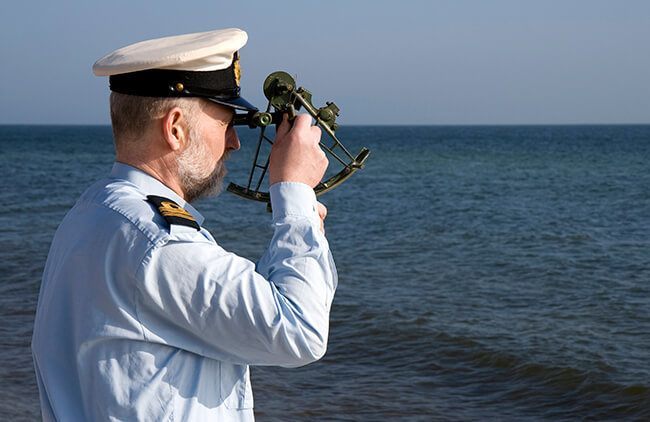
So in practice nothing has changed and the so called “Year of the Seafarer” has passed on without making a noise. A nice try to transform the maritime industry, but unfortunately nothing has been achieved and many prime issues faced by the industry remain unchanged. This undervalued attitude towards the sailing lot has led to a remarkable downfall of officers and crew alike in the maritime world.
Can anybody see where we are headed?
Recently during an officer’s meet, a young ship master was asked his profile, to which he said he was 35 years old, had been to sea for nearly 17 years and promoted to Captain only a while ago. He said he was lucky to have received impeccable training although he had experienced a slow rise in his career path. In the end, he added that he planned to continue sailing for a couple more years and then retire from sea, taking up something better ashore. Of course, he was questioned on why he would deviate from his sea career at such a young age, to which he bluntly answered citing reasons –
- Deteriorating sea conditions due to global warming and climate changes
- Chronic physical and mental fatigue and overwork time
- Pirates creating a nuisance in the modern era
- Work related pressure with increasing amount of audits, Vetting, Port State controls, ISM code etc.
- Salaries are not worth the amount of risk taken and time spent onboard
- Isolation, lack of communication and boredom
- Lack of support from ship owners, maritime authorities or the shipping industry, generally speaking
The man at sea is probably in desolation or misery and is definitely exploited. This explains why the suicide rates of seafarers have increased four folds as compared to the land based occupations.
It seems that the maritime industry has not learnt anything even when incidents such as that of the Hebei Spirit in Korea, the Pratibha Cauvery in India or the Prestige off the coast of Spain. In each situation the Master and the crew were left in a state beyond their control. In the recent Pratibha Cauvery case, the crew were left unattended for days, without provisions or pay until finally she grounded under stormy conditions.
Each and every time one of these incidences take place we hear clichéd murmurs from the shipping industry about the ship master and the crew making valiant efforts. But when it boils down to actually supporting the heroes, apart from having a felicitation, how far really is the shipping industry geared up to support the sailors? There have also been incidents where the crew fought bravely to avert massive clean-up operations or incidents that could have led to damaging sensitive coastlines and likewise. If they hadn’t saved the shipping industry a billion dollar operational mess or even save the ship and themselves, the crew would have probably been arrested and jailed.
Our presumption is that it all comes down to the money involved and the shore-side “risk management”. Wealthy Ship owners, pesky charterers and hungry customers are looking to cut costs and corners wherever possible. Maritime authorities are seemingly under rigid pressure from the industry to make laws less stringent. This are some of the many reasons why seafarers are moving away from maritime jobs.
Now the question is why the seafarers are let down badly at a time when there is such a shortage of skilled men and so many maritime jobs to be filled in the shipping industry. If we’d have to do math, a staggering 1.2m seafarers are employed worldwide with more than 8000 new vessels on order. Supply/Demand chain statistics show a shortage of seafarers by as much as 45000 in the near future.
Declaring the “Year of the Seafarer” was well meant and a legitimate endeavor to give the seafarers recognition and respect for who they are. Although a few changes were seen far and between after the efforts put up by the IMO, in practicality the improvements for seafarers will take time and unionised efforts. We also hope that the implementation of Maritime Labour Convention, 2006, also help in improving the quality of life at sea.
Therefore it is time that the shipping industry rewards promising maritime careers for young personnel, cover up with decent terms and conditions for employment, have high-quality safety and health standards, allow enough crew on board for adequate hours of rest, adhere to equality in seafarers’ rights and last but definitely not the least by making the work place better than ever before. It’s now time for the authorities to step up put its money where the mouth is. It’s up to the governments, ship owners and establishments to make this happen. In fact it is now bestowed upon all seafarers as a responsibility to preserve and enhance their hard fought careers. Without taking some drastic measures, it would be difficult to convince people in taking up maritime jobs in the coming years.
Do you have info to share with us ? Suggest a correction

About Author
Bikram Pal Singh is a professional mariner and blogger. He has sailed extensively, serving on various Oil tankers and Offshore Vessels. He enjoys reading and compiling notes about critical shipboard operations and crew psychology.
Latest Marine career Articles You Would Like:
- A Guide To IMU CET Exam 2024
- A Guide to Merchant Navy Ranks
- What is Marine Engineering: Courses, Job Description & Salary
- Duties of 3rd Officer in Merchant Navy
- What is the Difference between Merchant Navy and Defence Navy?
- Naval Architecture vs Naval Engineering vs Marine Engineering vs Ocean Engineering
Subscribe To Our Newsletters
By subscribing, you agree to our Privacy Policy and may receive occasional deal communications; you can unsubscribe anytime.




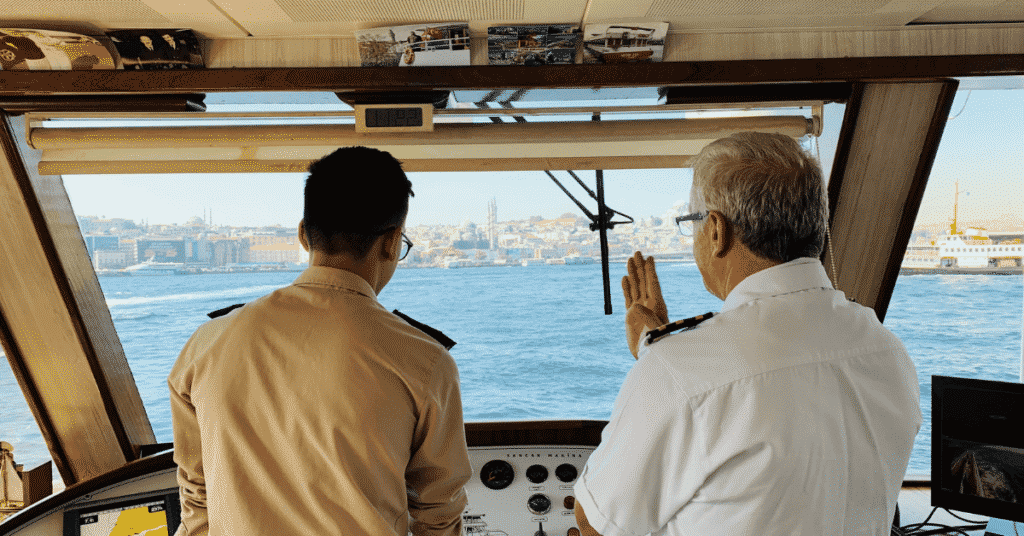



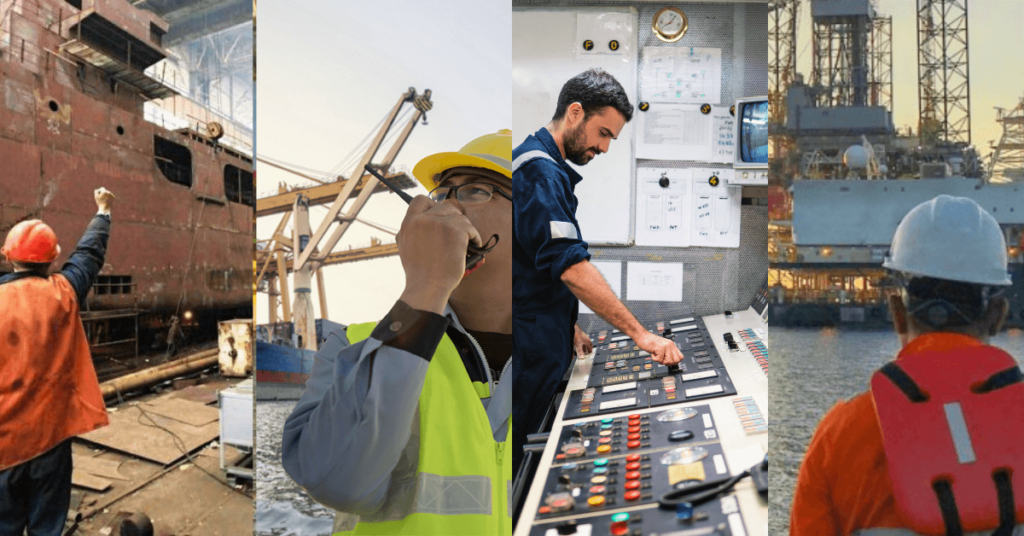


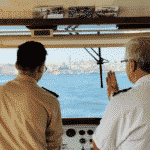



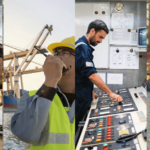
Bikram had touched upon the sensitive topic very nicely.
He predicted and raised his apprehensions about MLC 2006, which has become another millstone around the neck of the Master/ Chief Engineer.
I think the death knell of the seafarer was rang by the emergence of Management companies, who ensured that cheap labour was available with very little commitment from the end of the owner. The fact that the shipowner was not in the picture gave the liberty to the operators to take as many shortcuts as possible.
The legislations took care of the environment and protected the coasts of developed countries , while the seafarer generally went into a tailspin down.
How else does one explain that except for 1 or 2 companies no-one offers any retirement benefits to the employees. How does one explain that the salary of a OS or an A/B has remained stagnated at $1000 in the last 20 years.
Money become less each year.That’s it.
Why crew job is not secure
Why non diploma person come in the line
Why new crew paid lot of money for job 4.5 lKh
Maritime jobs are not preferred anymore due to several reasons an failures of IMO,Seafarers Unions etc,to follow up on the crew wages,working hours,Harassment, Nepotism and so many more .so most of the companies work with quantity labour and not with quality labour.